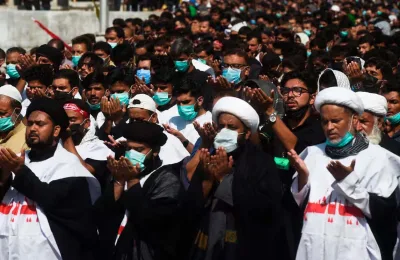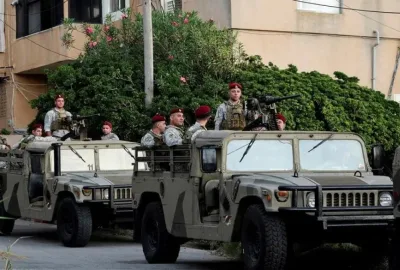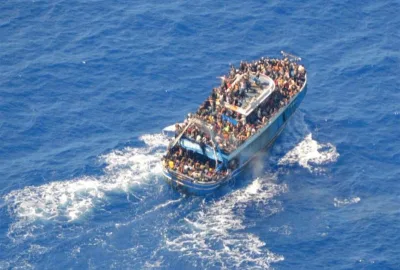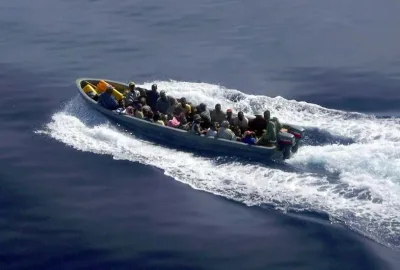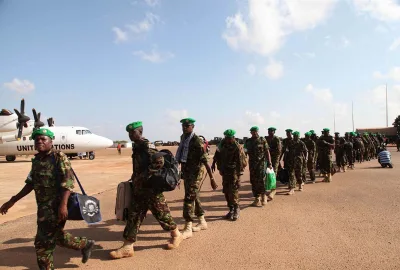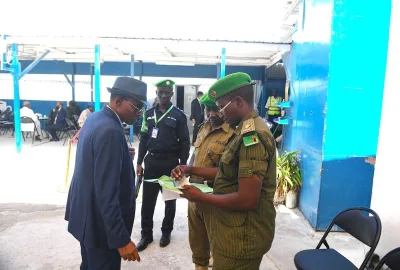Somalia’s preparation for this year’s elections is facing an early bump after 12 contenders for the…
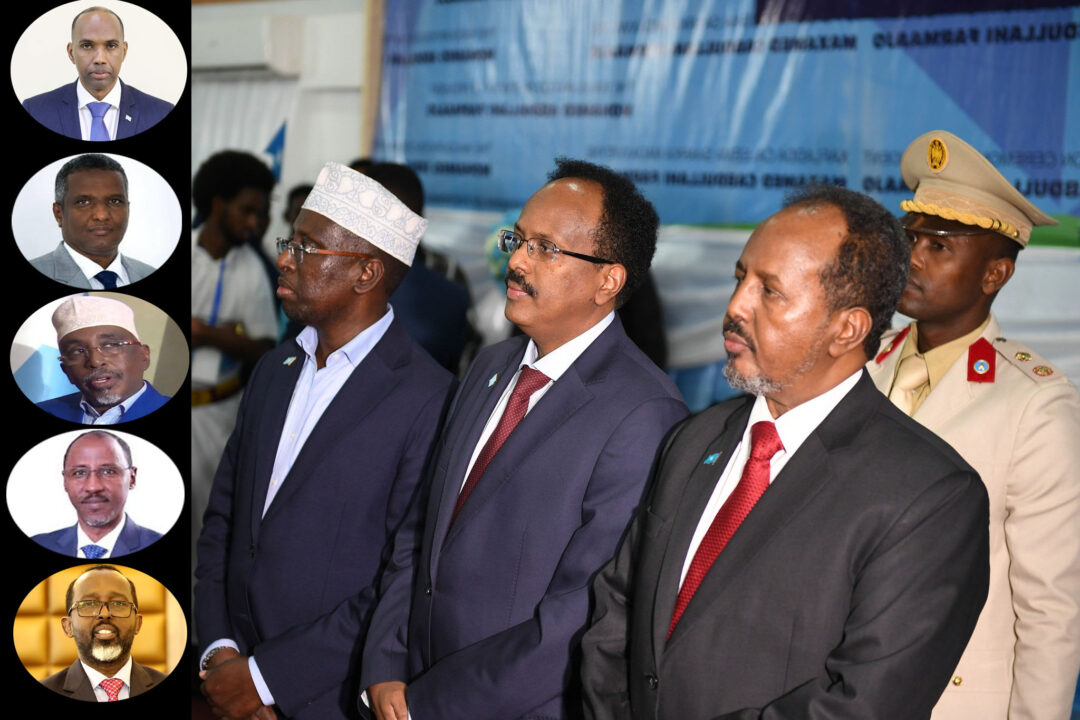
Somalia’s preparation for this year’s elections is facing an early bump after 12 contenders for the presidency rejected the poll team named last week.
The group, in a joint statement, argued the list of the National Electoral Committee (NEC) and the Conflict Resolution Committee (CRC) for the 2020-21 elections favours the incumbent.
It started with the publication of names by Prime Minister Mohamed Hussein Roble last week.
His cabinet approved 25 individuals as NEC members selected by the federal government of Somalia (FGS) and the federal member states (FMS) to manage the entire process of electing the 275 legislators of the Lower House and the 54 members of the Upper House also known as the Senate.
The announced CRC includes 21 individuals assigned to act as arbitrators in disputed arising from contested seats, whether between individuals, clans, or whoever other parties.
Six out of the 25 NEC members are female while five out of 21 CRC members are female, a nominal inclusion intended to reflect gender sensibilities.
But a dozen leaders who have expressed presidential ambitions cast doubt on the impartiality of the announced NEC and CRC committees, calling the action as ‘robbery and looting.’
“The committees are one-sided. Most of them are agents of NISA. Some of the committee members are also from the PM and President’s offices,” said Abdikarim Hussein Guled, the Chairman of opposition Sahan Party and who has expressed intention to be presidential candidate. He was referring to the Somalia spy agency; the National Intelligence and Security Agency (NISA).
Guled appended his signature on the joint statement issued by the 12 candidates. On Wednesday, the former Galmudug State President told the Nation he is uncomfortable with the composition of the teams because they look impartial.
“Election committees have to be partial. The teams formed so far are not,” he said.
The 12 contenders and a number of individual politicians running for legislative seats have expressed concerns. They include the National Parties Forum (NPF), a coalition of six political parties led by former Somali Transitional President Sharif Sheikh Ahmed (2019-2012) and former president Hassan Sheikh Mohamoud. Others include former Prime Minister Hassan Ali Khaire, Wadajir Party leader Abdikadir Abdishakur, Mohamed Abdi Mohamed Gandhi, Sharif Hassan Sheikh Adan, Abdikadir Osoble Ali, Dahir Mahamud Geele, Abdulle Mahamed, Sheikh Ali Duhulo and Mohamed Sbdirahman Ali Siriin.
“The president and the prime minister will take responsibility for anything that may lead to disputes and disputes that cast doubt on the independence of the committees and the outcome of the Somali Parliamentary elections, they said in a joint statement.
The formation of both committees is a result of a document agreed earlier in October by the federal government and federal states; Hirshabelle, Galmudug, Jubaland, South West and Puntland, on the procedures for the 2020-2021 elections.
Prime Minister Roble whose cabinet and policy programme was endorsed by the parliament on October 24 was then empowered to ensure that all stakeholders follow the terms of the laid down procedures, including guaranteeing that women get 30 percent of the membership of both houses of the legislative.
So far, the federal government and the five state governments have supported the teams.
But some political observers in Mogadishu argue that the wrangles over the teams could further derail the calendar which is already behind schedule on some issues.
“The NEC and CRC members were supposed to be nominated, formed and trained in October. That is being done in November,” Abdi Hirey, a local political analyst told the Nation.
“At this pace, the legislators may not be elected before the end of 2020 as scheduled as the process is likely to spill over to next year, 2021.”
Abdimalik Abdullahi, another analyst argued, however, that issues of fairness must be addressed to ensure credibility of the polls.
“Inclusion of government officials and intelligence officers undermines fairness and legitimacy of the election process,” Abdullahi wrote on his Twitter page.
“If this issue isn’t resolved, it can be a setback to the election agreement.”
On Wednesday, Somalia’s Deputy Prime Minister Mahdi Mohamed Guled expressed his “surprised” at the open letter of objection by the 12 contenders.
“The letter that disparaged the list of the electoral committees showed nothing but lack of self-confidence, desperation and surrender,” Guled charged in a statement to newsrooms.
Guled did suggest that the list, in deed, includes individuals selected from the offices of the government, but argued this wasn’t new and had been done before in 2016.
“There is no difference (in selection) between those who managed the election in 2016 and this one,” remarked the deputy premier.
The controversy rose a notch higher on November when PM Roble named a special 11-member electoral committee to deal with representation in the legislative houses of the northwestern Somalia region widely known as Somaliland.
The electoral modality agreed in October outlined that ‘election of the 46 MPs for Somaliland will take place in Mogadishu.’ The premier also referred to Articles of 99 and 100 of Somalia’s Provisional Federal Constitution, giving him powers to nominating committees.
Since the authority in Somaliland claims that its region separated from the rest of Somalia in 1991, its representatives in both legislative houses will be elected in Mogadishu.
But Speaker of the Upper House Abdi Hashi Abdullahi, a native of Somaliland claimed the list did not come through consensus.
“The announced committee members can not represent the will of the politicians from that region (Somaliland),” Hashi said in another open letter, asserting that some of the individuals in the list belong to the office of President Mohamed Abdullahi Farmajo, the office of the prime minister and even from the national security agency.
“They cannot be trusted,” he said.
On Monday, President Farmaajo claimed the 12 contenders were looking for their old pals to sit in the committees, arguing they were unsettled by the inclusion of many young people on the teams.
“Individuals in the opposition are saying that they do not see the ‘old guards’ in the list of electoral committee members and other tasks,” President Farmaajo told a group of youth he met in Mogadishu.
By Abdulkadir Khalif


